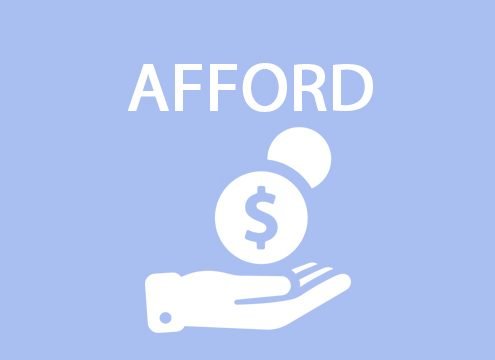“Afford” has the following uses: to have the money to pay for something, to spare (escatimar) something, to risk (something) or to provide something, to have the capacity (la capacidad) to do something. Let´s look at some examples.
First, to pay for something.
- Amelia cannot afford the Porsche (Amelia no puede permitirse el Porsche o no puede costear el Porsche).
- Spain cannot afford such spending (España no puede permitirse tales gastos).
- The holiday in Tenerife is affordable (the adjective of “afford”).
Second, to spare something (time, energy) or risk something or to have the capacity (la capacidad).
- I cannot afford the time to go to the opera (es que no dispongo de tiempo para ir a la opera).
- We cannot afford the risk of voting for Podemos (no nos podemos arriesgar a votar a Podemos).
- Could you afford a few minutes to help me (¿tienes unos minutos para ayudarme?)? You could also say: do you have some spare time to help me?
- POSE cannot afford to fight on two fronts (PSOE no tiene la capacidad para pelear en dos frentes).
Third, the use is similar to provide (proporcionar o dar).
- The parasol affords (da sombra) shade.
- The Brexit referendum result afforded Mr. Morales some relief (el resultado del referéndum de Brexit le proporciono a Señor Morales cierto alivio).
- Morales apartment affords fine views of the city (el apartamento de Señor Morales ofrece una hermosa vista de la cuidad).
Finally, there is a compound (compuesto) and negative form: ill afford. Here the main/first verb is positive.
- I can ill afford the time to go to the opera in Santa Cruz (no puedo darme el lujo de ir a la opera en Santa Cruz).
So, “afford” is a verb that you can ill afford to get wrong. It is a word that affords you many options for its use.











